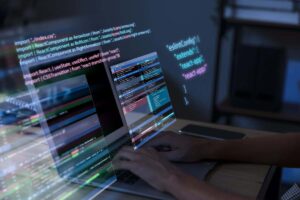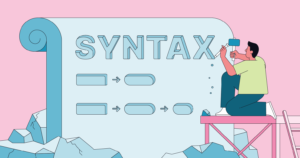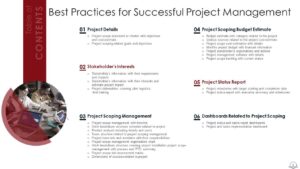Introduction:
Python is a versatile and beginner-friendly programming language that is widely used in various fields such as web development, data science, artificial intelligence, and automation. If you’re just starting out with Python, mastering the language can seem like a daunting task. However, with the right approach and resources,

Mastering a programming language can be a rewarding journey, opening up countless opportunities for creativity, problem-solving, and career advancement. Whether you’re just starting out or looking to deepen your expertise, here are some invaluable tips to help you along the way.
1 Understand the Fundamentals:
Understanding the fundamentals of a programming language is essential for building a strong foundation upon which to grow your expertise. Here’s a deeper dive into what this entails:
Mastering these fundamentals will provide you with a solid understanding of how the programming language works and enable you to tackle more complex challenges with confidence.
Before diving into advanced topics, make sure you have a solid grasp of the basics. Understand concepts like variables, data types, control structures, and functions. These form the foundation upon which your knowledge will grow.
2 Learn the Syntax:
making it easy for beginners to understand. Familiarize yourself with Python’s syntax, including keywords, operators, and indentation rules. Refer to the official Python documentation and online resources for quick reference and examples of Python syntax.

- Explain the syntax of the programming language, including keywords, operators, and syntax rules.
- Suggest using documentation and language references for quick lookup of syntax details.
- Provide examples of common syntax patterns and how they are used in practice.
3 Practice Regularly:
Like any skill, programming requires practice. Set aside dedicated time each day to write code, solve problems, and experiment with different techniques. Consistency is key to improvement. small projects, and experiment with Python libraries to reinforce your learning. Platforms like LeetCode, HackerRank, and Codecademy offer a wide range of Python exercises and projects for beginners.
- Stress the significance of consistent practice to reinforce learning and improve coding skills.
- Recommend setting aside dedicated time each day or week for coding practice.
- Suggest coding challenges, online coding platforms, and coding communities for practice and feedback.

4 Build Projects:
Apply your Python skills by building real-world projects. Start with simple projects like a calculator, to-do list app, or text-based game, and gradually increase the complexity as you gain confidence. Building projects not only solidifies your understanding of Python but also allows you to showcase your skills to potential employers or clients.
- Encourage beginners to apply their knowledge by building real-world projects.
- Start with small projects and gradually increase complexity as skills improve.
- Provide project ideas suitable for beginners, such as a simple calculator, to-do list app, or basic website.
5 Seek Guidance and Resources:
Don’t hesitate to seek help and guidance from the Python community. Join online forums, programming communities, and social media groups to ask questions, share experiences, and learn from others. Follow Python experts, read blogs, and watch tutorials to expand your knowledge and stay updated on the latest developments in Python.
- Highlight the importance of seeking help and learning from others in the programming community.
- Recommend forums, online communities, and social media groups for asking questions and sharing experiences.
- Suggest following experienced developers, reading blogs, and watching tutorials for additional learning resources.
6 Debugging and Problem-Solving:
Learning to debug and troubleshoot Python code is an essential skill for every programmer. When encountering errors, take a systematic approach to identify and fix the problem. Use print statements, debugging tools, and online resources to diagnose and resolve issues. Remember that debugging is a valuable learning experience that helps you become a better program.
- Teach beginners the importance of debugging and troubleshooting code errors.
- Share strategies for identifying and fixing common programming mistakes.
- Encourage learners to break down problems into smaller, manageable steps for easier troubleshooting.
7 Stay Persistent and Patient:
Learning Python, like any new skill, takes time and patience. With dedication and perseverance, you’ll gradually become more confident and proficient in Python.
- Remind beginners that learning to code takes time and patience.
- Encourage perseverance in the face of challenges and setbacks.
- Share personal anecdotes or success stories to inspire and motivate readers to keep learning.
8 Keep Learning and Growing:
Python is a vast and evolving language with countless libraries, frameworks, and applications. Continue to expand your Python knowledge by exploring advanced topics such as object-oriented programming, web development with Django or Flask, data analysis with pandas and NumPy, and machine learning with scikit-learn. Stay curious, experiment with new technologies, and never stop learning.

- Emphasize the need for continuous learning and growth in programming.
- Recommend exploring advanced topics, attending workshops, and pursuing further education.
- Encourage beginners to stay curious, experiment with new technologies, and never stop learning.
9 Engage with the Community:
Join online forums, programming communities, and attend local meetups or hackathons. Participating in discussions, asking questions, and sharing your own knowledge fosters learning and provides valuable insights from peers.
10 Explore Documentation and Tutorials:
Learn to navigate official documentation and online tutorials effectively. They often contain valuable insights, explanations, and examples that can help you understand language features and libraries.
11 Work on Projects:
Apply your skills to real-world projects. Whether it’s building a simple calculator or developing a web application, hands-on experience will deepen your understanding and showcase your abilities to potential employers.
12 Read Code:
Study code written by others, especially more experienced developers. Reading high-quality code exposes you to different styles, best practices, and advanced techniques. Open-source projects on platforms like GitHub are excellent resources for this
Conclusion:
Mastering Python may seem daunting at first, but with the right mindset and approach, it’s achievable for beginners. By understanding the fundamentals, practicing regularly, building projects, seeking guidance, and staying persistent, you’ll develop the skills and confidence needed to become proficient in Python. Embrace the learning journey, stay motivated, and enjoy the process of mastering Python!
Summarize the key tips for mastering the specific programming language as a beginner.Reinforce the message that with dedication, practice, and persistence, anyone can become proficient in coding.Encourage readers to start applying the tips and embark on their programming journey with confidence.

